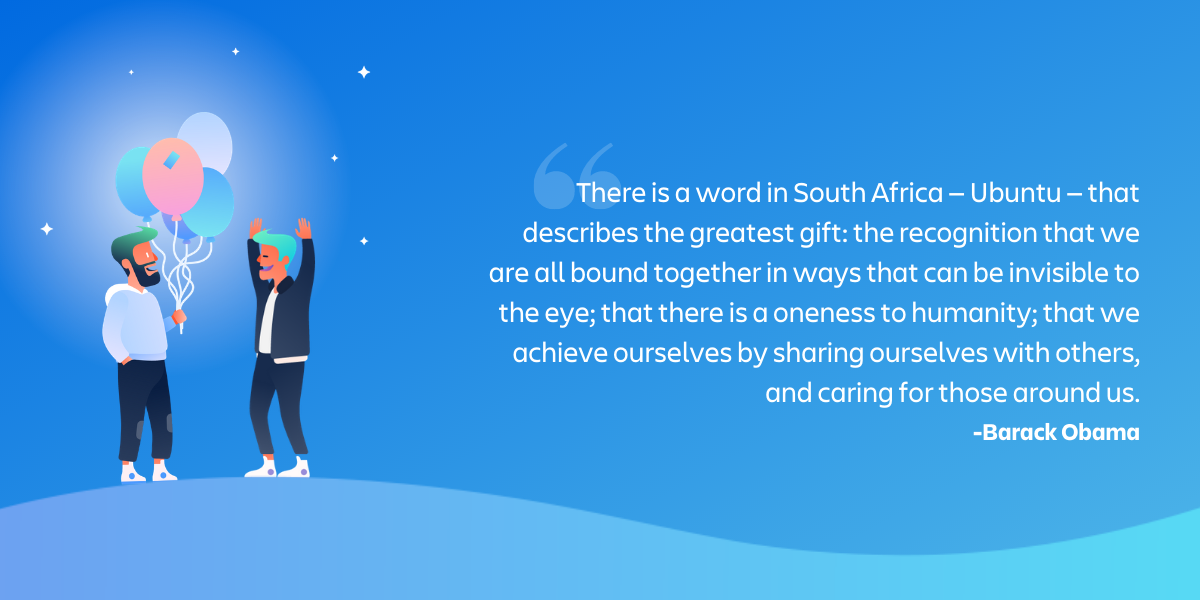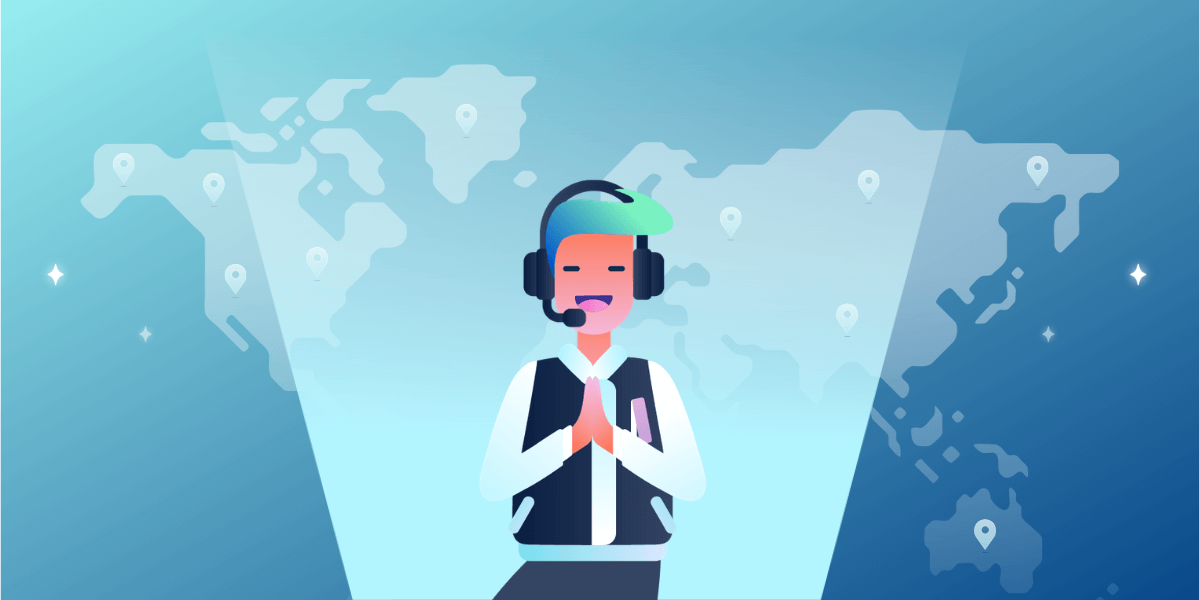For some, self-care arrives in the form of an online shopping spree (guilty). For others, it’s a greasy, albeit delicious meal from the new restaurant in town or a virtual happy hour with coworkers.
Whatever your method, practicing self-care isn’t just enjoyable, it’s essential for a happy soul. According to Oxford University, a happy soul is a more productive one—they found in a study that happy workers are 13% more productive at work.
While achieving overall happiness is more a lifelong journey than a simple solution to productivity, there are lots of easy ways to reduce stress, clear your mind, tackle your to-do list, and collaborate with your colleagues with first-class focus.
How To Use Wellness Practices To Boost Productivity Levels
Wellness is a term defined as “the state of being in good health, especially as an actively pursued goal.” It’s a term that involves the mind, body, and spirit, and it plays a huge part in how equipped you feel to do your job.
Dora Onyschak, Regional Vice President for Robert Half says:
“Some telltale signs I always advise people to be on the lookout for are incomplete work, decreased productivity, lower quality of work, and uncharacteristic mistakes.”
When a team is overworked or stressed, they don’t have the mental energy to pay as much attention to quality. While workload distribution methods like task reallocation can work wonders for managing feelings of overwhelm, sometimes it’s not possible to feel little to no stress during the workweek. It is possible, however, to offset the stress with some feel-good activities.
The effects that wellness has on productivity doesn’t stop at the team level. Author Tarra Mitchell states in her book, The Yoga of Leadership, “Leaders are neither inspiring nor productive when they’re feeling depleted, depressed, stressed or anxious,” Mitchell says. “They feel like they’ve lost a sense of meaning or purpose and are merely checking boxes.”
Without sustained personal wellness, both teams and leaders struggle to succeed. Here are some little-known wellness practices from around the world that will give your happiness a boost and in turn, your productivity.
India: Laughter Yoga
Thanks to Madan Kataria, a doctor from Mumbai, India who founded laughter yoga in 1997, people around the world have been laughing through their yoga classes and feeling better because of it.
Kataria states that laughter yoga is based upon the scientific fact that even if you are pretend-laughing, your body cannot tell the difference and you will likely feel happier.

In 2002, Charles Schaefer, a psychologist at Fairleigh Dickinson University confirmed this stance. He conducted a study on how forced laughter affected the state of mind of his students, and found that those who act happy (have a broad smile or hearty laugh) for a minute a day are more likely to have an elevated mood.
So how does it work? Well, each laughter yoga class is run differently. But the fundamentals are simple:
Follow the warm-up.
Engage in some deep-breathing.
Complete laughter exercises (it doesn’t matter whether or not the laughter is genuine).
⚡️Leave feeling refreshed and elated.
Looking for a feel-good team bonding activity? Try out a virtual laughter yoga session via Zoom!
China: Herbal Foot Soak
It may feel like the weight of the world is being carried by your shoulders, but your feet will disagree. Treat yourself to a mini spa-session right at home by indulging in the Chinese practice of a warm foot soak for 20-30 minutes before bed. This wellness practice is known to reduce stress, boost circulation, and soothe achy feet after a long day (yes, even if you’re living that sedentary lifestyle).

Traditional Chinese foot soaks include herbal ingredients such as ginger, safflower, lavender, orange, Epsom salts, orange, green tea, and grapefruit, so add some to your pot for pro-level pampering.
Japan: Inemuri
Ever wish that sleeping on the job was socially acceptable? It turns out that in Japan, spotting a worker heads-down at their desk enjoying some shut-eye isn’t an uncommon sight. Inemuri is the Japanese practice of enjoying a nap, and as long as you aren’t trespassing, blockading, or otherwise disturbing the peace, going to sleep wherever you are is perfectly acceptable.
So the next time that 3pm slump hits (and if your environment allows), consider taking a quick power nap or screen break and return to tasks feeling refreshed and revived.

Tibet: Singing Bowls
Also known as Himalayan bowls, Tibetan singing bowls are a type of vibrating bell and when played, are known to reduce stress, promote relaxation, and even aid in healing.
Buddhist monks have long used Tibetan singing bowls in meditation practice, and music therapists, massage therapists, and yoga instructors often use Tibetan singing bowls to support their practices by offering an added level of relaxation. While accessing your own bowls may prove difficult, appreciating their sounds and serenity is as easy as listening to some videos.
The science of singing bowl vibrations and the sounds of nature have been proven to be wonderful aids in helping us relax. Time to add some new types of tunes to your work playlist (and don’t forget to share it with your co-workers, too!).
Sweden: Shorter Workweeks & More Paid Vacation
What if that Friday feeling was more of a Thursday feeling? Many countries are experimenting with shorter workweeks and generous paid vacation packages, as they’re believed to boost productivity and employee satisfaction. Sweden has been implementing these practices for years, and many companies in Sweden are offering 6-hour workdays as well.
According to Linus Feldt, CEO of Filimundus, an app developer based in Stockholm,
“To stay focused on a specific task for eight hours is a huge challenge. In order to cope, we mix in things and pauses to make the workday more endurable. At the same time, we are having it hard to manage our private life outside of work.”
The theory is that teams are happier to work for a company that values their time and are equally as empowered to put in the extra effort during the hours they are working. A shortened workweek might be something to consider if your company fits within the type of work that can realize the benefits for employees and employers alike.
Similarly to the benefits of shorter workweeks, taking regular vacations has been proven to boost productivity levels, increase on-the-job performance, combat burnout, and it’s even linked to helping you live longer. Sounds like it’s time to submit that vacation request after all.

Brazil: Capoeira
Capoeira is the 500-year-old Brazilian practice of martial-art infused dance and remains a cultural icon today. From choreographed dances to competitions, Capoeira can be performed in many different ways. For those looking to learn the moves, break a sweat, and release stress, taking a virtual (or in-person, when the time is right) Capoeira class is a great option.
Participating in Capoeira classes can help to:
⚖️ Control weight
☀️ Improve mood
⚡️ Boost energy
♀️ Improve flexibility
Promote better sleep
Teach self-defense techniques
Try out a virtual Capoeira class to get your mind and body moving.
Scandinavia: Minimalist Way Of Life
Scandinavian minimalism is all about simplicity, purity, and calm. Less is more, and studies show that people with clean houses are healthier and less likely to experience anxiety. Your body craves order and rhythm, so providing that for the space you live in (and many are now working remotely in) helps everything to work better in sync.

Instead of buying more things, try to prioritize quality over quantity by reducing clutter and investing in endorphin-boosting experiences like exploring the outdoors or learning a new skill.
South Africa: Ubuntu
Ubuntu is a term from the Southern African Nguni languages of Zulu and Xhosa, and carries the English definition of ‘celebration of humanity and compassion and kindness towards others’.
Nelson Mandela summarized the spirit of ubuntu by describing it as:
“The profound sense that we are human only through the humanity of others; that if we are to accomplish anything in this world, it will in equal measure be due to the work and achievements of others”.
Small acts of kindness and compassion can go a long way for the state of our own wellness. Do good, feel good, as they say. Try creating a dedicated space such as a Slack channel for team members to spread positivity and kudos!

The Greatest Wealth Is Wellness
It’s time to give your mind and body some well-deserved release and relaxation, so dive in and encourage your team to do the same. Take a metaphorical trip around the globe by incorporating these wellness practices into your weekly routines, and see how your mind, body, and productivity transform you into a more collaborative (and chilled out) worker.
Next: Enjoy (And Request) Vacation Days In A Stress-Free Way







































